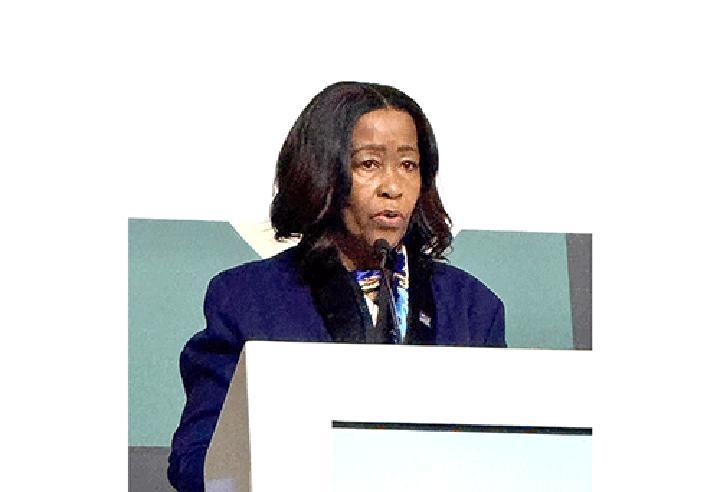Africa-Press – Namibia. The Ministry of Agriculture Fisheries Water and Land Reform embarked upon the development of bulk water supply infrastructure across the country as one of the priorities within the sixth National Development Plan (NDP6).
This was revealed by Agriculture Minister Inge Zaamuani at the official opening of the Otjombinde Agricultural Show held at Tallismanus in the Omaheke region over the weekend.
“We will focus on the development, maintenance, and expansion of bulk water infrastructure. Leveraging renewable energy and modern technology to improve water and diversifying water sources through reclamation, artificial recharge, and seawater and brackish ground water desalination will also be used,” she stated.
Zaamuani added that the government intends to increase access to water in rural areas from the current 84 to 91 percent by 2030.
According to the minister, the government has budgeted N$ 1.3 billion for the development of rural water supply infrastructure.
“This money will specifically be used for drilling of boreholes, installation of water points, construction of short pipelines and off-takes points in order to deliver water at household level with a view to reducing the distance people have to travel to get water,” she explained.
Otjombinde constituency has, over the years, experienced and continues to experience water scarcity.
The primary source of water in the area is boreholes, which are either operated by a diesel, fuelled water abstraction systems, and these remain costly for communal farmers to maintain.
Thus, Zaamuani said the government, through the Directorate of Water and Sanitation Coordination, the Rural Water Supply office began with replacing these systems with modern solar powered technologies.
“These technologies are alternatives to the high maintenance, high-cost diesel engine powered machines. This solution is being availed to some villages here in Otjombinde, while others are being provided with water tanks with portable water for human consumption,” the Minister said.
Furthermore, the Minister said that if Namibia is to achieve food security and rural development, there must be improved communal farming and create clear pathways for farmers to transition into commercial farming.
However, Zaamuani said the government is not obvious to several obstacles that communal farmers overcome, issues such as lack of water, land degradation, climate change, restricted market access, capital, and technology.
“These can only be overcome if we diversify our production and shift to farming practices that speak to current changes in climate, introduce improved methods, and reduce the number of livestock to levels that our grasslands can accommodate,” she said.
For More News And Analysis About Namibia Follow Africa-Press






